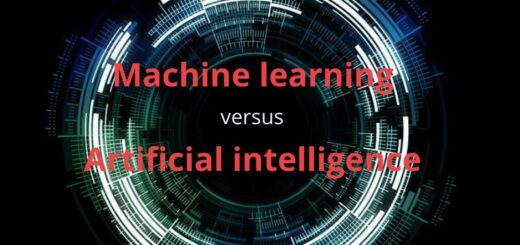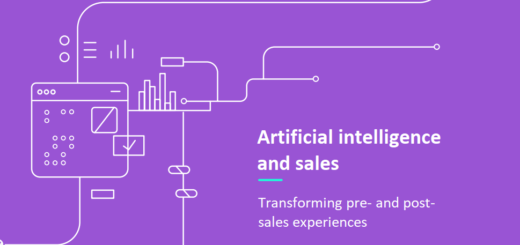
When it comes to digital marketing, artificial intelligence (AI) could be considered as a loosely connected array of technologies. However, this is far from the truth. Natural language processing, deep learning, computer vision and other trending AI technologies are interconnected and they enable entirely new possibilities for businesses to transform marketing processes, make them more accurate and affordable, and boost overall conversion rates.
The goal of this guide is to help marketers understand what artificial intelligence technologies enhance customer experiences and increase conversion rates. To do that, we’ll outline AI benefits and provide a high-level overview of AI marketing technologies.
Time for change
Digital marketing changes with each year passing by, and staying up-to-date on the latest best practices and growth opportunities is a full time job of every successful marketer.
Thanks to the extreme growth in the usage and adoption of the Internet in early 2000s, we have seen how drastically client communication and business transaction were accelerated.
After the release of the first iPhone in 2007, mobile has become the primary platform for marketers to build up effective communication with desirable consumers.
Now, it is artificial intelligence technology that will revolutionize digital marketing in the next few years.
The growing role of AI marketing technologies
In late 2019, the Interactive Advertising Bureau (IAB) reported that only 38% of CMOs realize what artificial intelligence really means and how to apply it for their businesses. It is still hard for most of digital marketers to understand an idea behind AI, and in most cases we even don’t recognize actual AI when we see and interact with it.
The reality is that AI is already here, and there are enough cases in the industry when early adopters use machine learning techniques to improve customer relationships and advertising performance. Now it is a great time to learn the basics of AI for marketing and benefit from this growing domain.
Let’s quickly take a look at the potential benefits AI offers:
- AI automates and optimizes marketing decision making. The ability to source and analyze massive amounts of data and provide insights in real-time means that marketers don’t have to guess which ad works best, or what content will resonate with whom, or how much inventory is available. AI helps marketers find the answers to these questions immediately—and in turn, they can spend more time on strategy and less time on data analysis tasks.
- AI directly increases marketing productivity. The more time that marketers spend on strategy and analytics, the better they can predict what ads, content or products will resonate with customers. This ultimately leads to higher conversion rates and lower cost per customer acquisition (CPA).
- AI improves marketing ROI. Instead of implementing a bunch of marketing channels blindly and hoping for the best, AI can also be used to figure out which channels have been most effective for a given audience. This offers marketers the opportunity to optimize their spend across those channels—as well as identify new ones to implement—to maximize their spend.
- AI makes it easier to manage larger marketing budgets. Even with advanced predictive modeling, AI still needs to be fed data to train its algorithms based on past performance. For marketers that have already invested heavily in measurement programs, the process of feeding that data into AI can be seamless. This means marketers can easily scale their budget to effectively meet specific goals.
- AI automates repetitive tasks. As more and more marketing teams adopt AI capabilities, it also frees up valuable time for analysts and planners to focus on higher-level projects like strategy and analytics.
- AI solves the hiring problem. While some argue that AI will take thousands of jobs away from humans, others believe that it will create even more opportunities for people to work with the technology in creative ways—especially when it comes to marketing. With more opportunity, comes a greater supply of talent.
- AI helps marketers focus on the right things. AI is able to analyze mountains of data and produce insights faster than humans can now do it on their own. This means that marketing teams now have the freedom to spend less time analyzing data, and more time focusing on other areas like strategy or content creation—just because they don’t have to do everything themselves.
- AI provides marketing teams with higher quality output for less cost. With AI, marketers are able to program algorithms to be better at certain tasks because the technology is constantly learning from past experiences so it becomes better over time.
AI technologies transforming digital marketing
So what are the most common AI technologies used by marketers? There are many of them! Let’s start with these ones:
- Natural language processing
- Deep learning
- Customer Sentiment Analysis
- Computer vision
- Predictive analytics
- Recommender systems
Marketers use these AI capabilities separately or in combination to create sophisticated machine learning models to boost the performance of their digital campaigns.
Natural language processing
Natural Language Processing (NLP) enables computers to understand the way we write and talk. AI-enabled NLP teaches machines for real-time recognition of sounds, words and phrases, as well as the tone of a conversion or article.
To see NLP in action, say “Ok Google” to your Android device or ask Siri a question on your iPhone. The AI engine on your smartphone will use NLP to “read” your voice or typing, understand your words, and provide a solution or answer.
Apple’s Siri, Google Assistant, Amazon’s Alexa, Yandex’s Alice are the popular examples of intelligent personal assistants, or chatbots that marketers use to streamline customer experiences and enhance brand recognition.
Deep learning
Deep learning is a technique in data science and machine learning in which a computer program self-modifies to progressively improve performance on a specific task. It works in a manner similar to the human brain, which makes it way more accurate than traditional programming.
AI-powered deep learning algorithms offer marketers an opportunity to optimize their marketing efforts and increase customer engagement by using AI for customized messaging and segmentation that makes sense.
Customer sentiment analysis
Customer sentiment analysis is the process of extracting customer emotions from text and voice data. At a high level, it involves identifying the emotions a customer might be experiencing, quantifying them and summarizing them into a number scale or a specific sentence.
For example, if a user engages with your brand on Facebook, the advanced algorithms in AI will extract emotion-based keywords from text reactions of your customers and classify them to create an overall sentiment index for each category on Facebook.
For marketers, this is a new way to understand what customers are thinking about your brand and what else they’d like from your products on social media. Customer emotion analysis can help you make strategic decisions about your marketing on Facebook and Google. You can use machine learning to pinpoint the right moments to push more relevant ads on Facebook, or select the best times to reach out to a specific group of users. Machine learning also lets you dig into the data from every angle possible, every day.
Computer vision
Computer vision is a term that refers to the computer process of analyzing and understanding images and then creating digital models and maps that depict those images.
For example, AI can help marketers identify products in online photos and videos, understand those photos as people tend to do, and deliver personalized eCommerce marketing messages by matching those products with what people are actively looking at.
AI-powered computer vision lets marketers identify the product in a lot of different ways – from the color to the shape, to the brand, etc. – to create customized content for customers within hours or even minutes.
Predictive analytics
Predictive analytics lets machines estimate the likelihood of future outcomes based on historical data. It combines large datasets and advanced algorithms to learn what has happened and why and then provide a best assessment of what will happen in the future.
For example, an AI-powered CRM system analyzes incoming customer data to find and prioritize leads that are likely to make their first purchase within the next week. Marketing predictive analytics turns raw data into meaningful insights for marketers, and ultimately increases customer ROI.
More accurate predictions are made with larger datasets analyzed. But as data grows and becomes enormously big, marketers have to use AI to even make sense of it all. AI-powered predictive analytics engines lets break down the silos of customer data into insights that matter and to deliver more satisfying customer experiences.
Recommender system
To see recommender systems in action, open almost any popular eCommerce resource on your favorite web browser or mobile app. They use AI to recommend things you might want now.
For example, every time Flipkart offers you a product to purchase or YouTube suggests you videos you might want to watch next, AI behind the scenes analyzes the data about your previous content experiences to figure out what else you might like now.
AI-powered recommendation engines help marketers boost dynamic ads effectiveness on mobile and web. By analyzing the content a target user has engaged with in the past, AI manages to serve up personalized ad units based on the predicted likelihood of a tap or click at any given time. Dynamic ads personalization will ultimately improve consumer experience and increase the return on ad spend respectfully.
Wrapping up
We have just skimmed the surface of AI’s technology potential for marketers. And it’s only the beginning! As this all-encompassing, next generation of technology is implemented more widely, the effects on online marketing will almost certainly be far-reaching.
Readers, what are your thoughts on the AI technologies for marketing?







